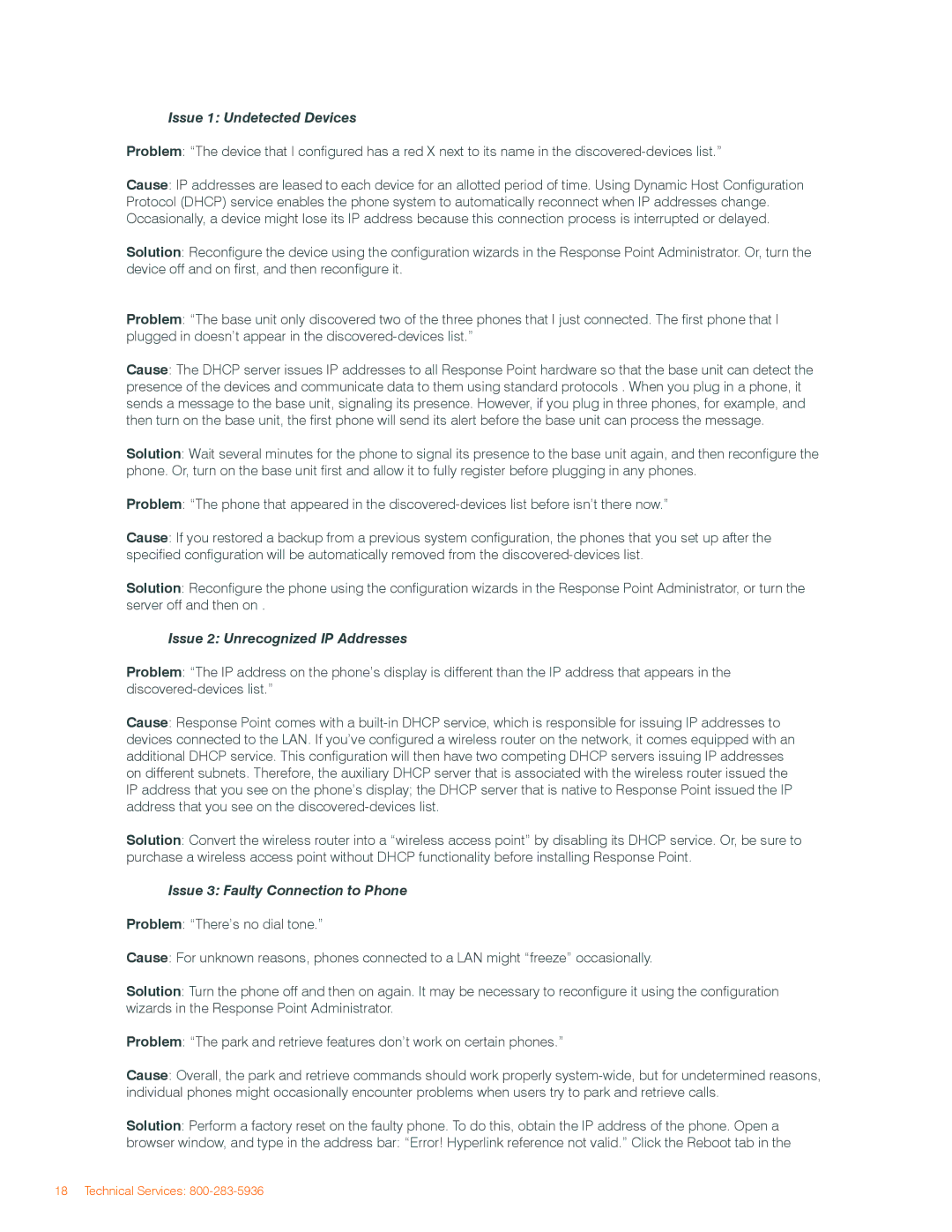Issue 1: Undetected Devices
Problem: “The device that I configured has a red X next to its name in the
Cause: IP addresses are leased to each device for an allotted period of time. Using Dynamic Host Configuration Protocol (DHCP) service enables the phone system to automatically reconnect when IP addresses change. Occasionally, a device might lose its IP address because this connection process is interrupted or delayed.
Solution: Reconfigure the device using the configuration wizards in the Response Point Administrator. Or, turn the device off and on first, and then reconfigure it.
Problem: “The base unit only discovered two of the three phones that I just connected. The first phone that I plugged in doesn’t appear in the
Cause: The DHCP server issues IP addresses to all Response Point hardware so that the base unit can detect the presence of the devices and communicate data to them using standard protocols . When you plug in a phone, it sends a message to the base unit, signaling its presence. However, if you plug in three phones, for example, and then turn on the base unit, the first phone will send its alert before the base unit can process the message.
Solution: Wait several minutes for the phone to signal its presence to the base unit again, and then reconfigure the phone. Or, turn on the base unit first and allow it to fully register before plugging in any phones.
Problem: “The phone that appeared in the
Cause: If you restored a backup from a previous system configuration, the phones that you set up after the specified configuration will be automatically removed from the
Solution: Reconfigure the phone using the configuration wizards in the Response Point Administrator, or turn the server off and then on .
Issue 2: Unrecognized IP Addresses
Problem: “The IP address on the phone’s display is different than the IP address that appears in the
Cause: Response Point comes with a
Solution: Convert the wireless router into a “wireless access point” by disabling its DHCP service. Or, be sure to purchase a wireless access point without DHCP functionality before installing Response Point.
Issue 3: Faulty Connection to Phone
Problem: “There’s no dial tone.”
Cause: For unknown reasons, phones connected to a LAN might “freeze” occasionally.
Solution: Turn the phone off and then on again. It may be necessary to reconfigure it using the configuration wizards in the Response Point Administrator.
Problem: “The park and retrieve features don’t work on certain phones.”
Cause: Overall, the park and retrieve commands should work properly
Solution: Perform a factory reset on the faulty phone. To do this, obtain the IP address of the phone. Open a
browser window, and type in the address bar: “Error! Hyperlink reference not valid.” Click the Reboot tab in the
